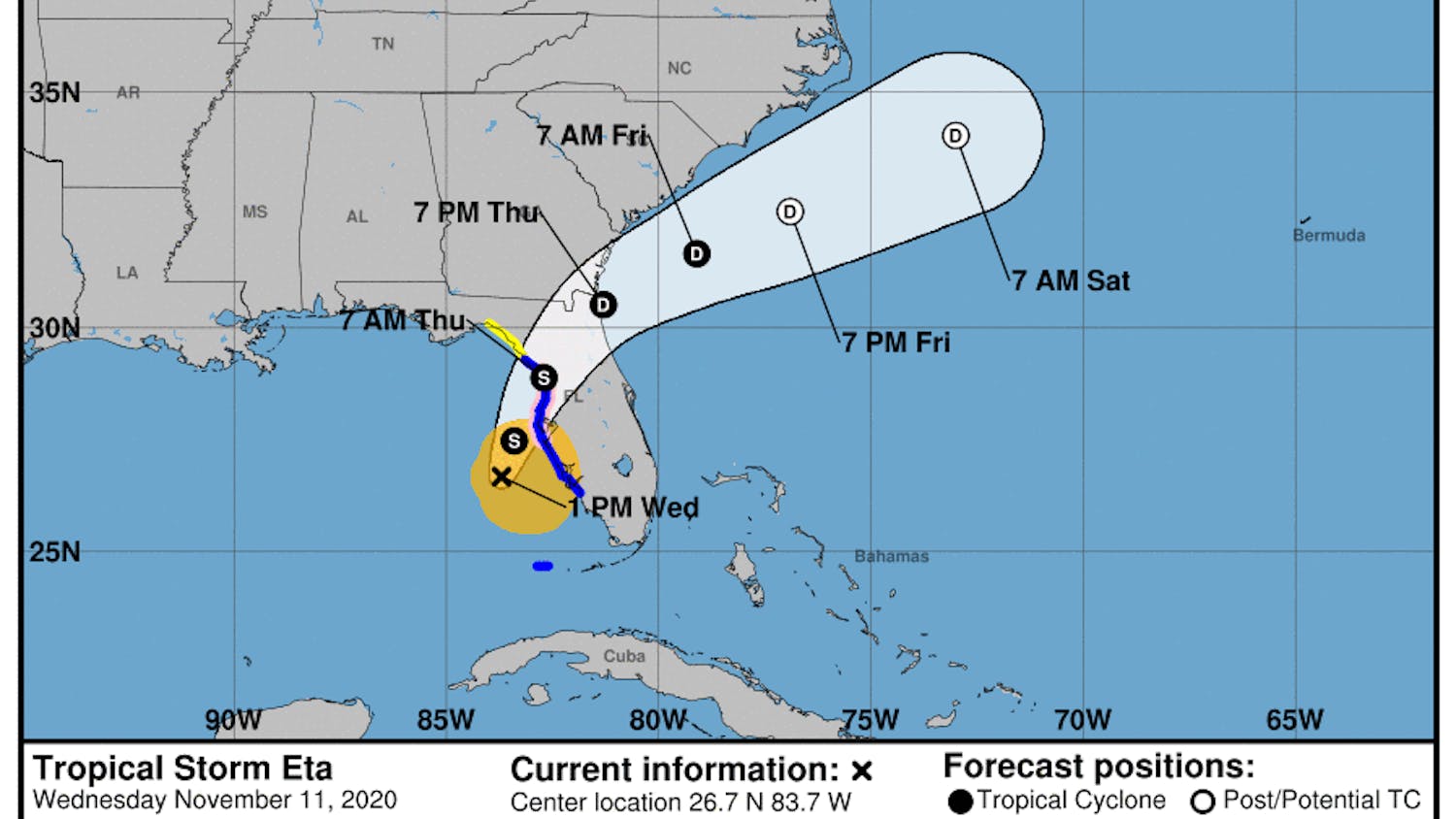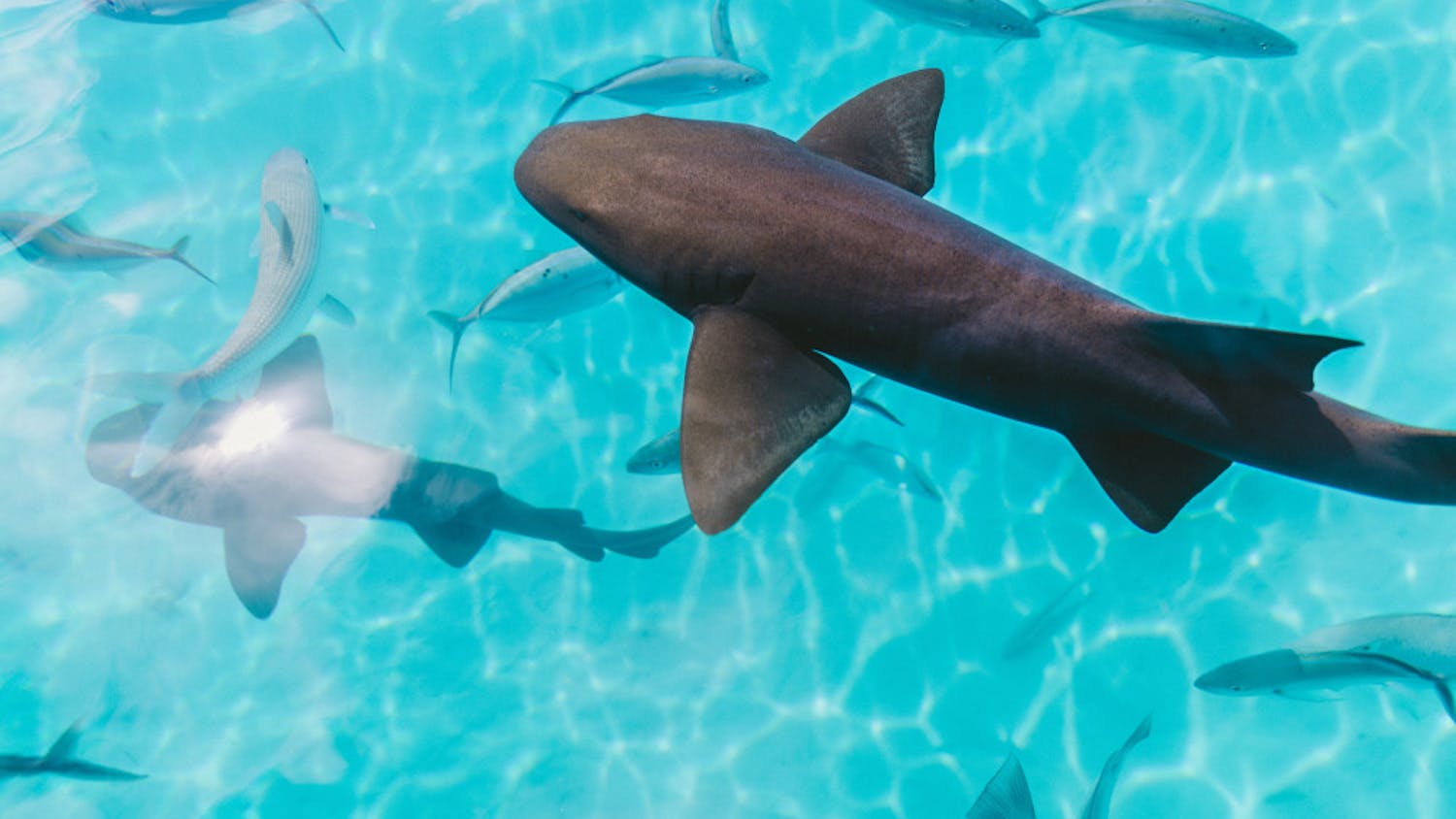A 2011 study said the great white shark population was endangered, but UF shark expert George Burgess and a team of researchers didn’t think those conclusions added up.
The Stanford University study only accounted for the sharks in a small area, said Burgess, director of the Florida Program for Shark Research. The great white shark population based on the study seemed uncommonly low.
So Burgess and a team of researchers reexamined the study and found that the great white shark population was 10 times more populous than previous years.
“This is good news,” Burgess said. “The population is doing very well.”
The researchers reexamined the great white shark population by identifying two aggregate sites, which are sites that sharks return to year after year, and using tags to keep track of the sharks that returned.
The tags look like a pocket radio with an antenna toward the side of the fin, said Heidi Dewar, fisheries research biologist at the National Oceanic and Atmospheric Association.
The tags can survive the marine environment for a couple of years, but they typically pop off after eight months to a year.
The antenna on the shark communicates with a NOAA weather satellite to provide scientists with data about the shark’s location, she said.
The difficult part about this research is that the sharks may not come back to the aggregate site, and some might not approach the water’s surface in order for the satellite to pick up the tag’s signal.
“I’ve been working on large projects for a while, and there are still a lot of mysteries,” Dewar said. “I personally haven’t done much research on sharks, but it’s an important part of the ecosystem and a good poster child for talking about marine animals.”
Even though the great white shark population is growing, she said, people are still safer in the ocean than they are driving to the beach.
After years of researching the great white shark and showing other findings, they believe that their research is correct, Burgess said.
If the great white shark population were endangered, there could be a change in the lobster population, he said, but there may be population changes down the line because one change in the ecosystem influences the others.
“We still need to keep our eyes open and our heads aware to give the sharks the protection they need,” Burgess said.





